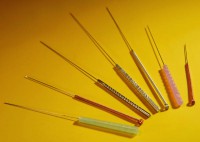
In what many consider to be a revolutionary change in traditional medical thinking, alternative cancer treatments are going mainstream. With a growing number of studies and mounting clinical evidence pointing to the quality of life benefits of many alternative treatments, practitioners of Western medicine have begun adopting alternative cancer therapies.
“Rebirth” of Alternative Cancer Therapies
Once given short shrift by traditional oncologists, acupuncture, autohemotherapy, massage therapy, hyperthermia, phytotherapy and a lengthy list of beneficial alternative cancer therapies are undergoing “rebirth” as the traditional cancer community recognizes their quality of life benefits in the light of new research revealing the importance of immunotherapy in fighting cancer.
Alternative treatments are not new, but have been used to battle disease or ease its symptoms for thousands of years, as these examples indicate:
- Acupuncture has been an accepted and respected treatment procedure in traditional Chinese medicine since ancient times.
- The use of herbal medicine, or phytotherapy, dates back to man’s earliest attempts to treat disease and has historical significance in nearly every human culture.
- The therapeutic use of massage therapy also has its roots in antiquity. The Greek physician Hippocrates, considered to be the Father of Medicine, wrote about the therapeutic benefits of “rubbing” in the 5th century B.C.
Everything Old Is New Again
What is “new” in Western medical circles is recognition of the validity of these ancient therapies and their ability to enhance cancer treatment and mitigate the pain and side effects of traditional cancer treatments.
For more than 60 years, Issels Integrative Oncology has incorporated beneficial alternative cancer therapies into our personalized immunobiologic core treatment for cancer as part of our comprehensive program of integrative immunotherapy.





